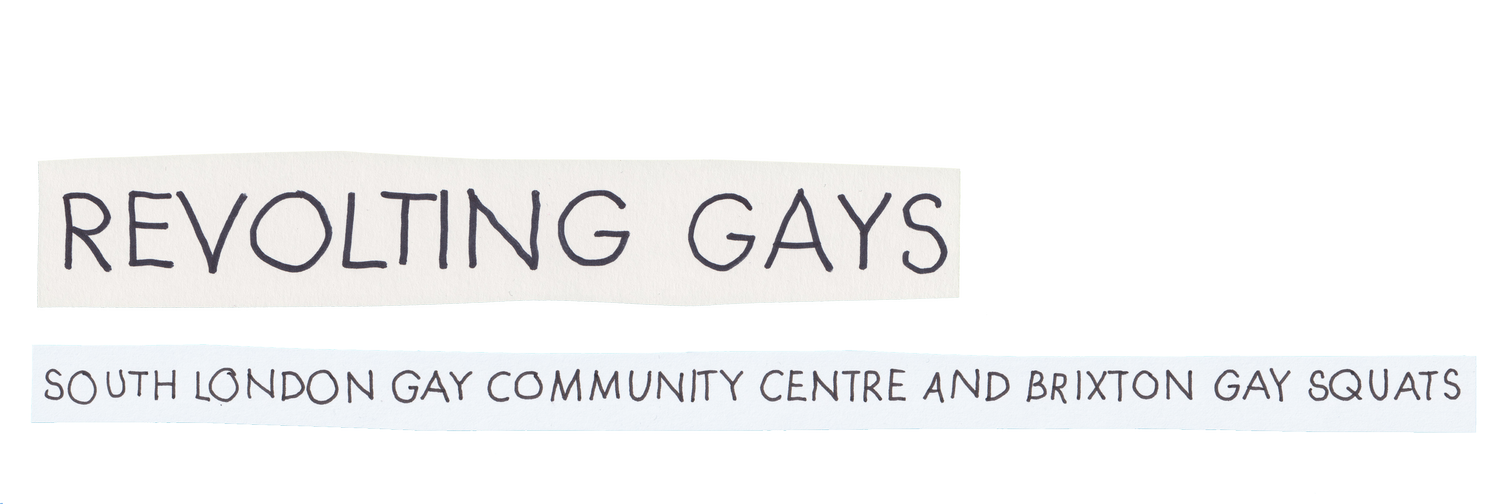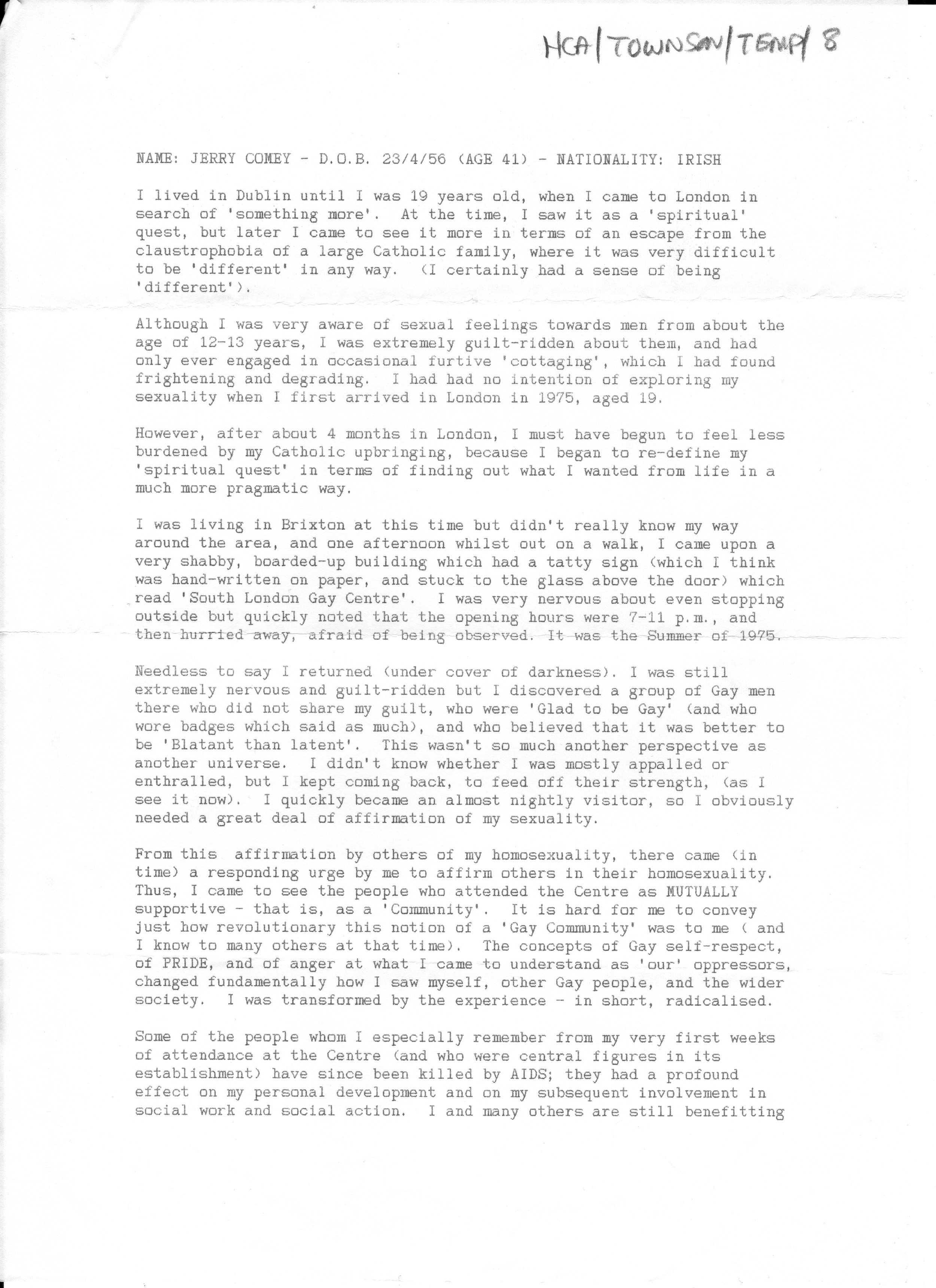Jerry Comey
Recollections written by Jerry Comey in correspondence with Ian on 1/08/97
1/8/97
Dear Ian,
Sorry for the long delay in responding to your request for information regarding my experiences of South London Gay Liberation. I'm not at all sure that my experiences "fit" the schema of your book, but if, having read this, it prompts any further questions, please feel free to telephone me. My number is (0151) 263 8125
Best of luck with the book.
Regards,
Jerry Comey
Letter Transcription
NAME: JERRY COMEY D.O.B. 23/4/56 (AGE 41) - NATIONALITY: IRISH
I lived in Dublin until I was 19 years old, when I came to London in search of 'something more'. At the time, I saw it as a 'spiritual' quest, but later I came to see it more in terms of an escape from the claustrophobia of a large Catholic family, where it was very difficult to be 'different' in any way. (I certainly had a sense of being 'different').
Although I was very aware of sexual feelings towards men from about the age of 12-13 years, I was extremely guilt-ridden about them, and had only ever engaged in occasional furtive 'cottaging', which I had found frightening and degrading. I had had no intention of exploring my sexuality when I first arrived in London in 1975, aged 19.
However, after about 4 months in London, I must have begun to feel less burdened by my Catholic upbringing, because I began to re-define my 'spiritual quest' in terms of finding out what I wanted from life in a much more pragmatic way.
I was living in Brixton at this time but didn't really know my way around the area, and one afternoon whilst out on a walk, I came upon a very shabby, boarded-up building which had a tatty sign (which I think was hand-written on paper, and stuck to the glass above the door) which read 'South London Gay Centre'. I was very nervous about even stopping outside but quickly noted that the opening hours were 7-11 p.m., and then hurried away, afraid of being observed. It was the Summer of 1975.
Needless to say I returned (under cover of darkness). I was still extremely nervous and guilt-ridden but I discovered a group of Gay men there who did not share my guilt, who were 'Glad to be Gay' (and who wore badges which said as much), and who believed that it was better to be 'Blatant than latent'. This wasn't so much another perspective as another universe. I didn't know whether I was mostly appalled or enthralled, but I kept coming back, to feed off their strength, (as I see it now). I quickly became an almost nightly visitor, so I obviously needed a great deal of affirmation of my sexuality.
From this affirmation by others of my homosexuality, there came (in time) a responding urge by me to affirm others in their homosexuality. Thus, I came to see the people who attended the Centre as MUTUALLY supportive - that is, as a Community'. It is hard for me to convey just how revolutionary this notion of a 'Gay Community' was to me ( and I know to many others at that time). The concepts of Gay self-respect, of PRIDE, and of anger at what I came to understand as 'our' oppressors, changed fundamentally how I saw myself, other Gay people, and the wider society. I was transformed by the experience in short, radicalised.
Some of the people whom I especially remember from my very first weeks of attendance at the Centre (and who were central figures in its establishment) have since been killed by AIDS; they had a profound effect on my personal development and on my subsequent involvement in social work and social action. I and many others are still benefitting.



